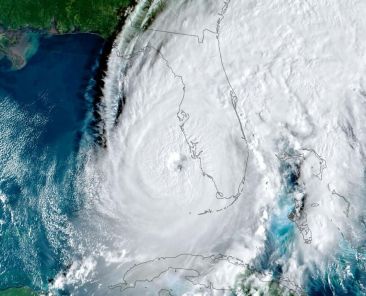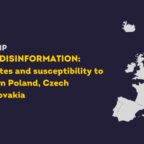About CEDMO
The Central European Digital Media Observatory (CEDMO), as an independent non-partisan multidisciplinary hub, aims to identify, research and prioritise the most critical sources and causes of information disorders in Central Europe (mainly the Czech Republic, Slovakia and Poland). This international consortium was created to propose a set of short and longer-term actions, as well as recommendations to help civil society, public institutions and the private sector respond to the declining trust in key institutions and help society to resist the effect of increasing exposure to mis- and disinformation.
By interacting and coordinating with European Digital Media Observatory (EDMO) and other regional EDMO hubs in EU, CEDMO will contribute to curbing threats posed by information disorders, including disenchantment with the democratic processes, and discord in civil society in Europe, and to building community and nation-wide resilience while protecting information ecosystems.
About CEDMO
The Central European Digital Media Observatory (CEDMO), as an independent non-partisan multidisciplinary hub, aims to identify, research and prioritise the most critical sources and causes of information disorders in Central Europe (mainly the Czech Republic, Slovakia and Poland). This international consortium was created to propose a set of short and longer-term actions, as well as recommendations to help civil society, public institutions and the private sector respond to the declining trust in key institutions and help society to resist the effect of increasing exposure to mis- and disinformation.
Our Partners
About CEDMO
The Central European Digital Media Observatory (CEDMO), as an independent non-partisan multidisciplinary hub, aims to identify, research and prioritise the most critical sources and causes of information disorders in Central Europe (mainly the Czech Republic, Slovakia and Poland). This international consortium was created to propose a set of short and longer-term actions, as well as recommendations to help civil society, public institutions and the private sector respond to the declining trust in key institutions and help society to resist the effect of increasing exposure to mis- and disinformation.
Our Partners
The one-minute, 56-second video was shared on Facebook here by a Malaysia-based user on June 29, 2022.
A July 29, 2022, tweet that has been shared and liked thousands of times makes the claim, sharing a screenshot of a text saying: “This is not food for mammals. Only BIRDS can process insect food in safe conditions. Birds digestion apparatus is COMPLETELY different as ours…”
“Warm coconut water will isolate and kill cancer cells!” reads a June 1 Facebook post here.
“You at the airport,” says text over a picture of a transportation security agent watching a woman pass through a full-body scanner.
“AWWW… THANK YOU!!!” says a February 4, 2024 post on X, formerly Twitter, from an account called “il Donaldo Trumpo.”
“Boycott Israeli products! Easy way to identify Israeli products. If there are 729 numbers at the beginning of Barcode! It means Israeli product (sic),” reads a Facebook post from Nigeria shared alongside an image of a barcode.
The false post was shared by an India-based Facebook user on August 26, 2022.
“Tornado hurricane patents… Do you get it yet? … The weather is weaponized and controlled,” says text over the video, which shows pages from the two patent filings.
“Ivermectin reduces COVID death risk by 92%, peer-reviewed study finds,” says a September 28, 2022 Instagram post with more than 43,000 likes.
“AWWW… THANK YOU!!!” says a February 4, 2024 post on X, formerly Twitter, from an account called “il Donaldo Trumpo.”
“Stop buying all aquatic and processed products from Europe,” read Chinese text overlaid on a TikTok video uploaded on December 12, 2023.
“OLD PALESTINIAN MAN PLEADS WITH ISRAELI SOLDIERS NOT TO CUT THE OLIVE TREE HE GREW & SAYS SHOOT HIM INSTEAD,” says a December 20, 2023 post sharing the short clip on X, formerly Twitter. “SO SAD, MONSTERS.”
The video, published on Facebook on March 7, 2022, has been viewed over 7.6 million times and shared more than 48,000 times.






































